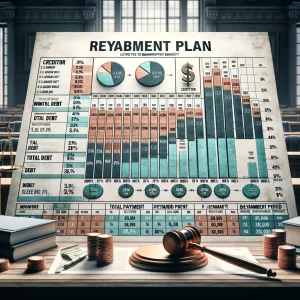CHAPTER 7 BANKRUPTCY ATTORNEY ASSISTING THOSE IN IDAHO
In a prior Blog post, I discussed the requirements for qualifying for a Chapter 7 Bankruptcy. One of the ways to qualify is for your income to be at or below the median income based on your household size. In that case, you have passed the Means Test and no further analysis is needed. You qualify for a Chapter 7 Bankruptcy.
However, if your income is above the median income, you must pass the remaining portion of the “Means Test.” The test is laid out in Bankruptcy Form B22A. In order to do so, you must determine your current monthly income pursuant to 11 U.S.C. Section 707(b)(2) and then deduct certain allowable expenses from your income.
Current monthly income is defined by the Bankruptcy Code. It equals the average monthly income from all sources that you have received during the last six months. It includes sources of income that are not taxable. Therefore, it includes sources of income such as private disability insurance benefits and the like.
Allowable expenses include things such as food, clothing, household supplies, personal care, miscellaneous expenses, transportation, taxes, mandatory payroll deductions, health care, telecommunications services, care for disable family members, and payments on secured and priority debts. The allowable expenses are based on national and local standards and vary based on your residence.
Your current monthly income minus your allowable expenses is referred to as your “disposable income.” If your disposable income is equal to or greater than a specified amount, specified in 11 U.S.C. Section 707(b)(2), then you do not qualify for a Chapter 7 Bankruptcy. This computation is complex and can only be completed after careful consideration of your personal financial status. You are required to determine your disposable income to determine if you have enough money, after you take into account your allowable expenses, to pay your creditors.
If you do not qualify for a Chapter 7 Bankruptcy due your income being too high, you still may qualify for a Chapter 13 Bankruptcy. Chapter 13 still provides the distressed debtor with protections from creditors and may be the best option for some debtors.
Contact our offices to discover how our bankruptcy attorneys can help you sort through the complex bankruptcy process.






